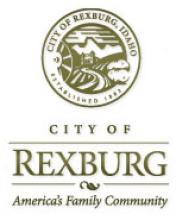
Fast, affordable Internet access for all.

A collaboration between local Idaho and Wyoming counties, the town of Rexburg, Idaho, and Brigham Young University will be exploring the possibility of a community owned fiber optic network. Significant business interest in the project has contributed to the decision to move forward with a feasibility study.
According to a Standard Journal article, Design Nine has been hired to conduct the study which will look at what networks are currently in place and provide a detailed plan for future development. The $78,000 study, to be completed in May, is funded in half by a federal grant with the remaining paid for by public and private donations.
Fremont County, Idaho; Madison County, Idaho; Teton County, Idaho; and Teton County, Wyoming are all participating and together obtained the federal grant. According to the City of Rexburg Department of Economic Development website on the fiber initiative:
Rexburg's City Council recently (June, 2011) passed an initiative to facilitate the availability of broadband internet in Rexburg. High-speed broadband internet, as referred to in this initiative, is a fiber-optic connection with download speeds exceeding 1,000 bytes per second (1 Gbps). Private businesses have requested for upgraded services, but these requests have not yet been met. Accordingly, citizens and city officials have established the Rexburg Community Access Network Initiative. High-speed broadband means smart growth for Rexburg.
From the Standard Journal Article:
Two companies have already expressed interest in adding data centers in Rexburg, but current lack of bandwidth makes that a challenge, [Economic Development Director for Rexburg Scott] Johnson told members of the Kiwanis Club earlier this week.
Brigham Young University-Idaho is the main component behind the study, he said during the meeting.
“They are the ones who asked us to do this and take this forward,” Johnson said.
Johnson said the university has minimum Internet connectivity expectations for every student on campus, which falls far short because of the current infrastructure. He said the rapid proliferation of electronic devices make it imperative to plan for better informational connectivity.

The discussion about fiber in the region has been going on for some time. A 2003 Standard Journal article described a meeting hosted by the Rexburg Chamber of Commerce. Many of the same groups along with representatives from Cable One, Qwest (now CenturyLink), and Idaho fiber network provider Fremont Telcom/FreTel Communications (now part of Blackfoot Telecommunications) attended that gathering.
Also in attendance at that 2003 meeting was Richard Holloway, from the Madison School District, who noted that the school district had installed $650,000 worth of buried fiber optic lines and were quite pleased with the results:
Holloway said while the initial installation was expensive, the quality of the connection is much better and very inexpensive to use.
Before, when the district was using a T1 line, the system was often down and student data information required by the state was easily lost.
"This has solved our down time," he said.
As can be expected:
Richard Jayo, Idaho general manager of Qwest Communications, suggested that Rexburg and the area has everything it needs to attract high-tech businesses and that the community already has everything available to it except for DSL.
"Fiber and broadband are not necessarily synonymous," he said, trying to convince the audience that the high speed T1 lines already available are sufficient to the community's needs.
"There's no amount of bandwidth that we can't deliver if someone wants it," Jayo said.
"If a business is interested in your community, we stand ready to make a trip to explain how robust your communications are."
Readers may recall that T1 lines are 1.5 Mbps, a far cry from the 4 Mbps down and 1 Mbps upstream that the FCC now defines as a "basic" broadband connection. Taking advantage of modern applications requires even faster connections, especially for businesses. All Qwest (now CenturyLink) representatives parrot the claim that we can deliver anything necessary, but refuse to quote prices. Their prices are far in excess of what is reasonable, which is why communities are investing in their own networks -- to ensure everyone has access to fast, affordable, and reliable connections.
